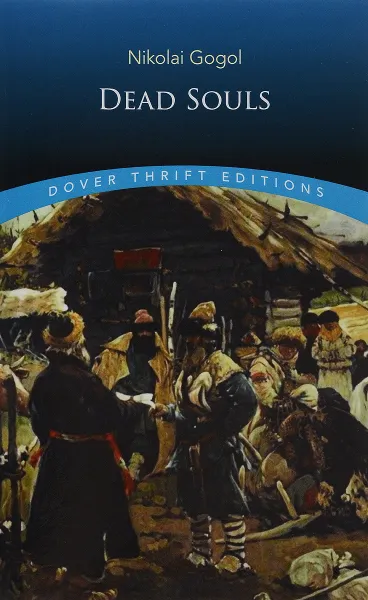Dead Souls
🔖 A stranger arrives in a Russian backwater community with a bizarre proposition for the local landowners: cash for their "dead souls," the serfs who have died in their service and for whom they must continue to pay taxes until the next census. The landowner receives a payment and a relief of his tax burden, and the stranger receives - what? Gogol's comic masterpiece offers the answer in a vast and satirical painting of the Russian panorama, as it traces the path and encounters of its mysterious protagonist, Pavel Ivanovich Chichikov, in pursuit of his dubious scheme.
The plot of Dead Souls is reputed to have been inspired by an actual episode related to the author by his friend, the poet Pushkin. Although intended as a three-part novel, only the first part and a few fragments of a draft of the second part exist; Gogol completed and destroyed the second part, and died in the course of his ascetic preparations for writing the third. Some readers consider his novel a realistic portrait of nineteenth-century Russia; others regard it as a work of great symbolism, proclaiming the trickster Chichikov an accurate image of commercial travelers the world over, whose success rests less upon their actual wares than on their grasp of human nature and powers of persuasion. Among the greatest nineteenth-century Russian novels, Dead Souls continues to inspire twenty-first century authors and readers.
The plot of Dead Souls is reputed to have been inspired by an actual episode related to the author by his friend, the poet Pushkin. Although intended as a three-part novel, only the first part and a few fragments of a draft of the second part exist; Gogol completed and destroyed the second part, and died in the course of his ascetic preparations for writing the third. Some readers consider his novel a realistic portrait of nineteenth-century Russia; others regard it as a work of great symbolism, proclaiming the trickster Chichikov an accurate image of commercial travelers the world over, whose success rests less upon their actual wares than on their grasp of human nature and powers of persuasion. Among the greatest nineteenth-century Russian novels, Dead Souls continues to inspire twenty-first century authors and readers.
Мнения
